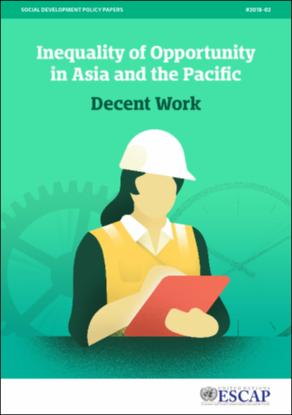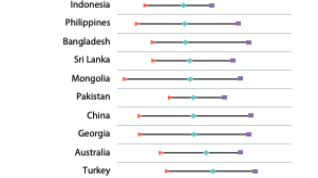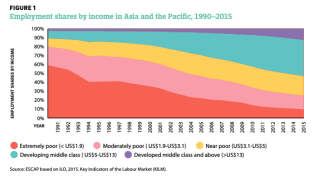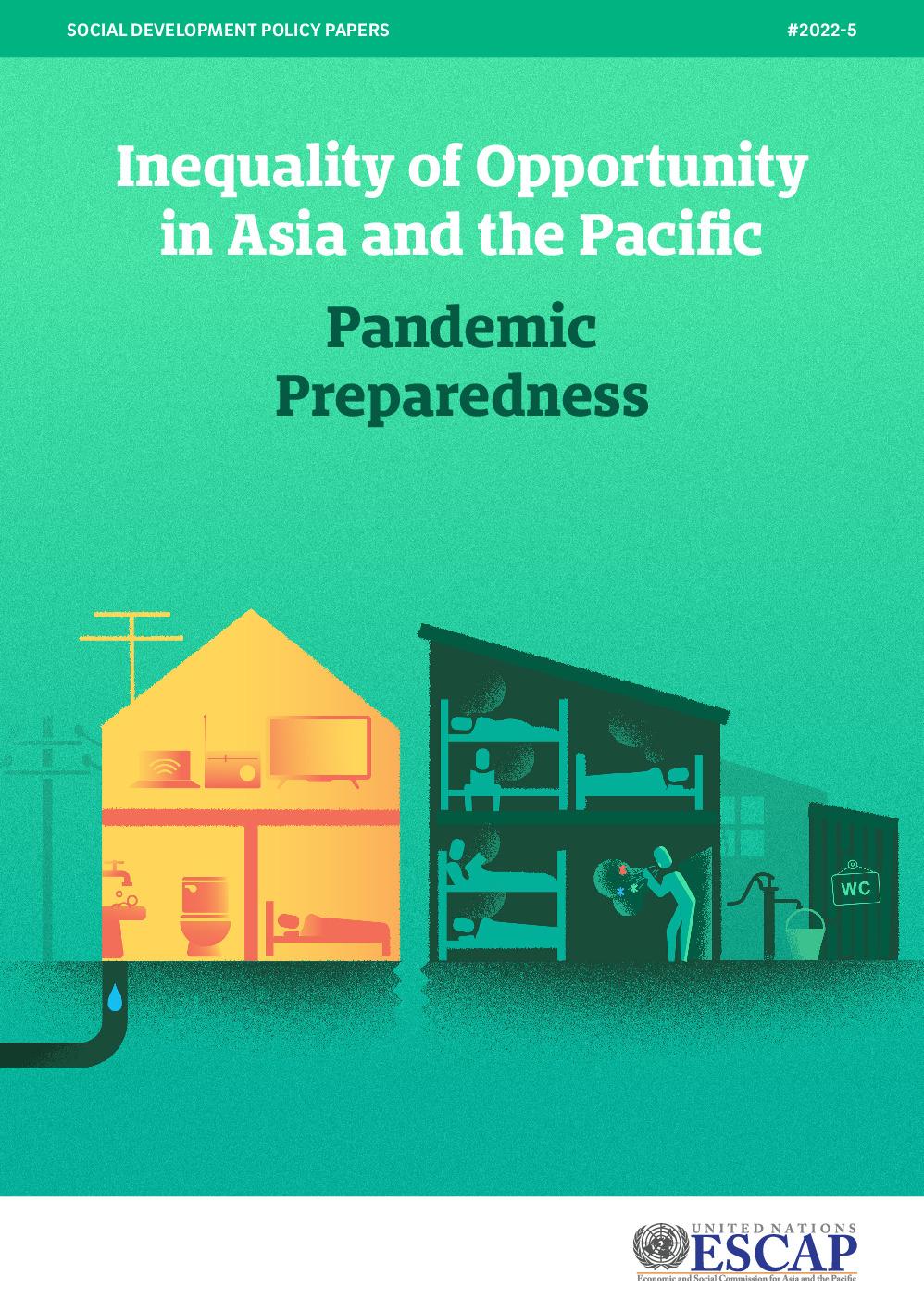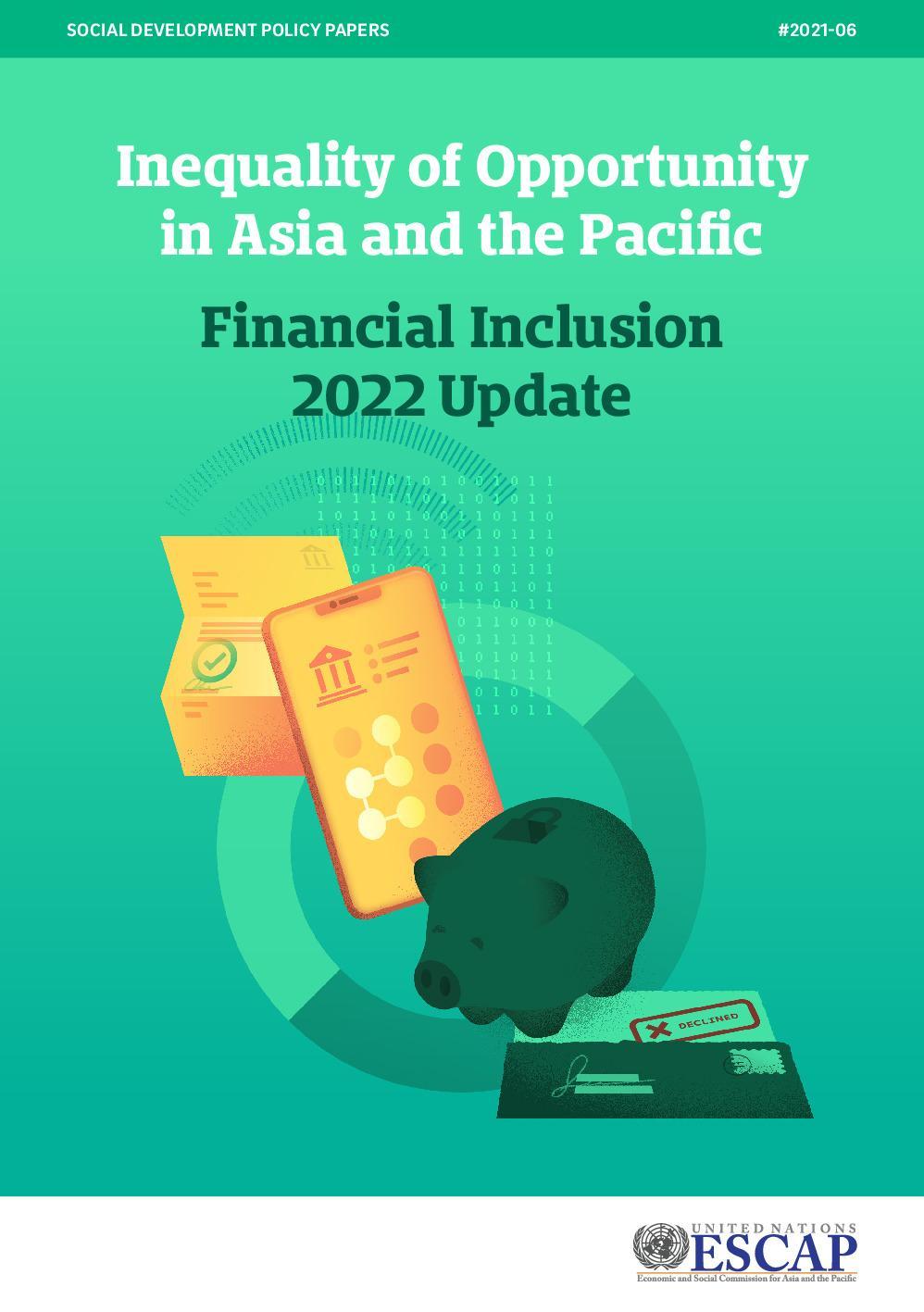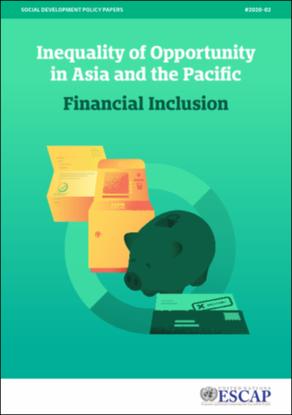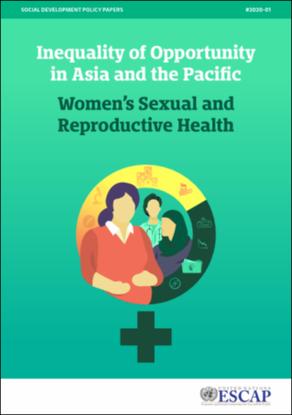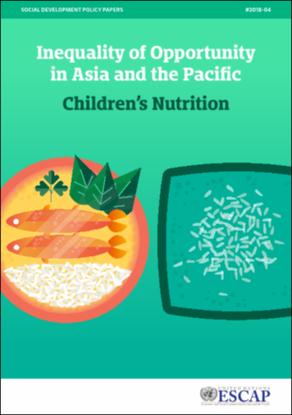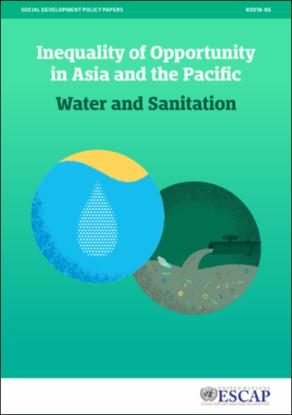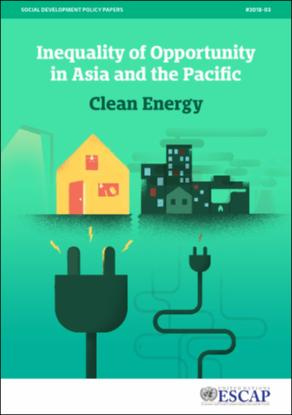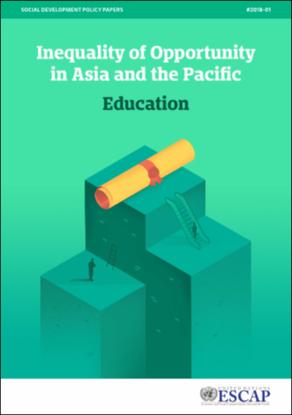Decent work : inequality of opportunity in Asia and the Pacific
Policy Brief
01 January 2018
• Introduction and scope
• Why does inequality in access to decent work matter?
• A new approach to identifying the furthest behind
• Who are those furthest behind?
• Understanding overall inequality in access to full-time employment;
• Does ethnicity matter for determining the furthest behind?
• Recommendations for closing the gaps.
• Annex
The ESCAP Inequality of Opportunity papers place men and women at the heart of sustainable and inclusive development. The papers do so by identifying seven areas where inequality jeopardizes a person’s prospects, namely: education; women’s access to health care; children’s nutrition; decent work; basic water and sanitation; access to clean energy; and financial inclusion. Each of these opportunities are covered by specific commitments outlined in the 2030 Agenda for Sustainable Development and addressed in a separate thematic report covering 22 countries throughout Asia and the Pacific.
Decent work embodies full and productive employment, rights at work, social protection and the promotion of social dialogue. Reaching those left behind and enabling access to decent work will promote lives of greater dignity and greatly reduce all forms of inequality. The overall aim of this policy paper is: i) to outline why policymakers need to take action to reduce inequality in access to full-time employment; ii) to introduce a new way of analysing survey data by identifying the shared circumstances of those “furthest behind”; and iii) to analyse observed inequality by the relative contribution of each different circumstance, over which the individual has little or no control.
